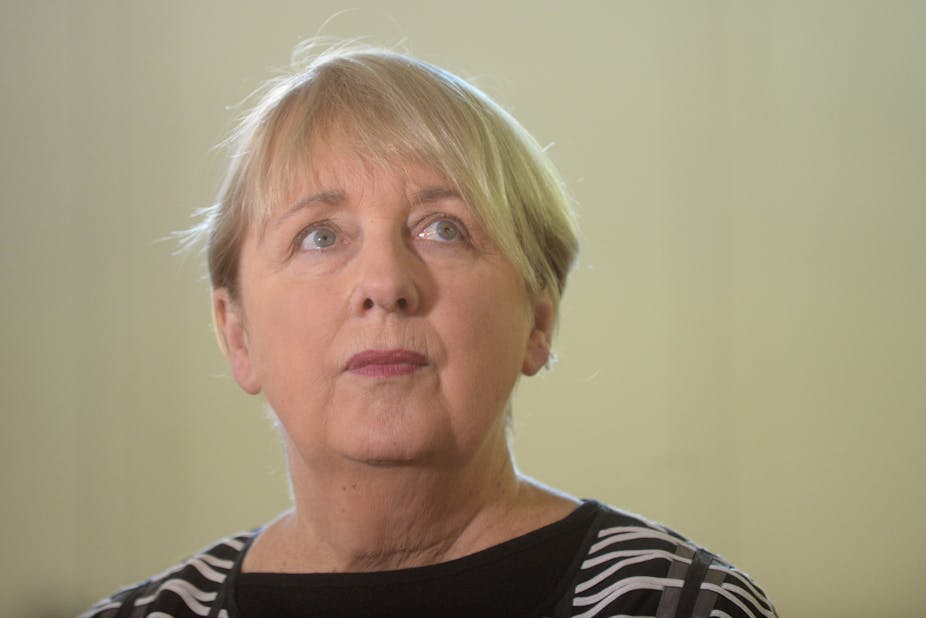Opposition frontbencher Jenny Macklin says Labor should frame its policies around delivering “inclusive growth” and needs a new narrative to explain its agenda to the Australian people.
In a major speech for The Conversation’s Future of Welfare conference today, Macklin, who is spokeswoman for families, says Labor’s great reformers Bob Hawke and Paul Keating recognised that social policy is a key driver of economic growth.
Australia faces a choice between the economics of austerity, embraced by the current government, or a new agenda of inclusive growth based on social investment in human capital, she says.
The foundations of this agenda must be health and education, but it has to include other policies to deal with the social and economic transformations underway in Australia.
Labor’s task is to respond to the challenges of these transformations with new social policies for “supporting more people into work, reducing poverty and inequality, sharing the risks that come with a dynamic, open economy and ensuring people can effectively manage work and care”.
Macklin emphasises that the pursuit of inclusive growth also requires a new set of economic policies that recognise the importance of human capital and drive growth by strategically investing in that capital, as well as generating the revenue to pay for it in a way that is good for the economy and society.
But having good policies alone is not enough, Macklin says – people must be brought along with a new narrative.
“I don’t mean just a three-word campaign slogan. I mean a story that all Australians can relate to and from it recognise that it’s in all of our interests to have an Australia with inclusive growth at its core.”
In government Labor did this well in some areas and not so well in others, she says. The national disability insurance scheme is “good policy coupled with a strong social and economic narrative”.
Education has always been at the core of Labor’s social policy priorities. “We have always recognised that education is the key to opportunity,” Macklin says. “Our challenge is to make sure that education is the very core of Labor’s economic narrative, because it is education that will be the driver of our economic growth.
"Without it we will not succeed in this changing world.”
But to get there the narrative about growth must be changed, Macklin argues. So long as the growth narrative is narrowly based, investments of the kind Labor envisaged in Gonski “will never be a central part of our economic narrative”.
As Labor steps up its policy work ahead of next year’s ALP national conference, Bill Shorten today will tell a policy forum looking at the party’s platform that its task goes beyond the technical jobs of updating and reviewing documents.
“It is a moral task, renewing our ideas and our sense of moral purpose. It is a call that every generation of Labor has answered.”
In his speech, Shorten calls on the party to develop a vision for the Australia of 2020 and 2030 – the product of community ideas and the broadest range of voices.
“We need to step outside the echo chamber of modern politics – to take the task of government to the community.
"We want to work with the best experts, we want to hear from the people who know.
"We are committed to an authentic national conversation, a genuine exchange of ideas. It’s a reflection of our faith in the genius and generosity of the Australian people.”
The party’s job is to construct a platform that “speaks to the reality of Australians’ lives” – that is as modern, confident, generous and outward looking as the people and the nation, he says.
Labor’s statement of its enduring values needs to be re-energised, he says, and in the first chapter of its platform it should “reach for the higher ground” – for an inclusive Australia.
It should emphasise its belief in fairness. Fairness “drives prosperity, it underpins growth, it lifts living standards, it creates jobs – it gives everyone a chance to fulfil their potential.
"Fairness demands we care for the vulnerable, it demands we speak up for the powerless, include the marginalised and uplift the disadvantaged.”
It is a pact between generations, opening the doors of education for the young, ensuring people do not retire poor, and caring for the environment, Shorten says.

